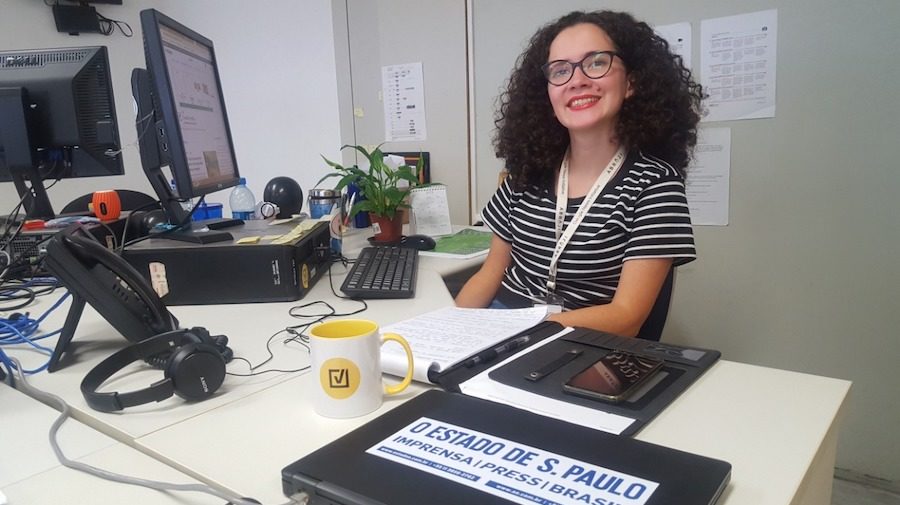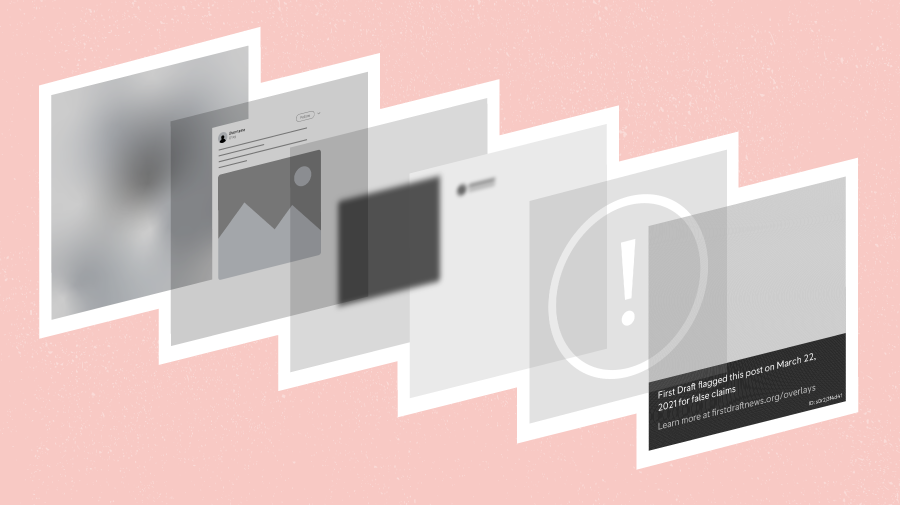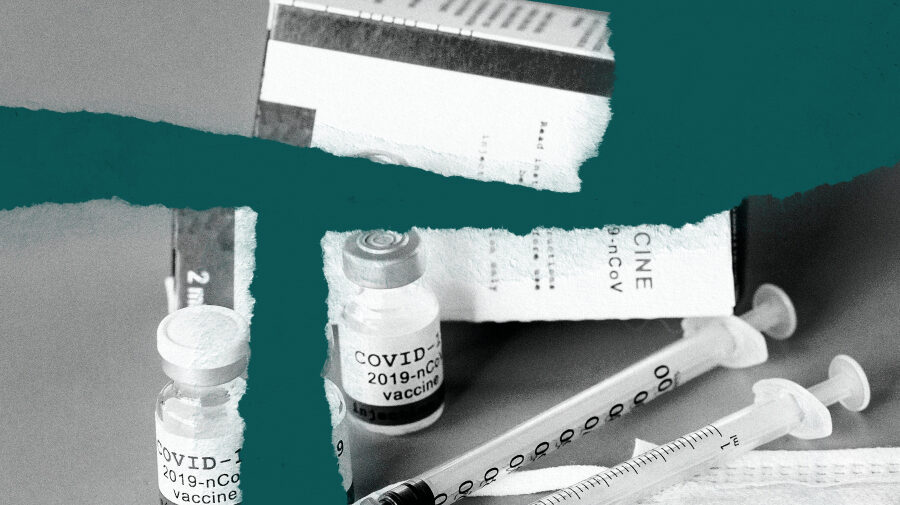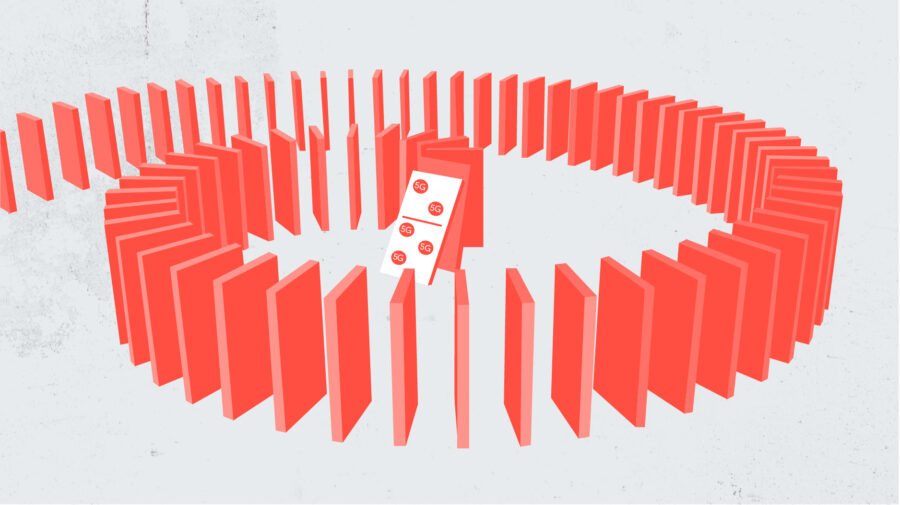LONDON — Alessandra Monnerat admits she was a shy kid growing up who spent lots of time reading books. Part of what motivated her to become a journalist and fact-checker — aside from her idealism and commitment to public service — was a desire to get in touch with more people.
Alessandra now works for the Brazilian newspaper Estadão’s verification unit as a fact-checker and reporter. Her work monitoring social media, receiving tips on WhatsApp, researching and writing up her findings, puts her in touch with innumerable people across Brazil.
Since she graduated from university in 2016, Alessandra has been busy. She has written blog posts on Latin American journalism and press freedom for the Knight Center while also working as a full-time journalist and fact-checker at Estadão. During the 2018 elections, she worked on CrossCheck’s Comprova project — a collaboration between 24 different Brazilian media companies which investigated disputed information.
First Draft talked to Alessandra about her experience as a fact-checker in Brazil and the current climate of mis- and disinformation in the country.
First Draft: Why do you think fact-checking is such an important job?
Alessandra Monnerat: We have a very complicated information environment here in Brazil right now. People don’t trust the media as much anymore. They tend to get their information from unreliable sources and that really messes up the public debate. We saw that during the 2018 elections. People were getting fake stories from WhatsApp and social media and I think that really had an impact on the way they made their decisions to vote and choose our president.
Last year was a wake-up call for journalists everywhere in Brazil because we saw how many people were consuming disinformation.
Was there a particular moment in your professional career that inspired you to get involved as a fact-checker?
Last year was a wake-up call for journalists everywhere in Brazil because we saw how many people were consuming disinformation. We were really hit by this wave of disinformation that was coming from WhatsApp and social media. It was kind of late in the game, but that’s when myself and other journalists realized it was a really important thing to do. I wasn’t involved with fact-checking before, but once I got involved I saw what a large underworld we are exploring and the massive task we are undertaking.
How would you describe the experience of working on the Comprova project during the Brazilian election in 2018? What were some of your fondest memories from that experience?
We had a very crazy WhatsApp group. Imagine that you are waking up at 8am and you have 200 messages on the group. It was hectic. People were talking all the time and discussing very passionately. One of the things I missed when Comprova ended was this kind of discussion about the fact-checking and verification process where we had to make a lot of decisions. What are we going to check? Is this worth checking? With all of those people arguing and discussing it made our choices safer, I felt more confident in our choices. When you work independently you have to make those choices on your own and it’s harder. With more collaboration it’s easier, we were able to do a lot of fact-checks that were more challenging and complex than we are able to do now when working in a smaller team.
One of the things I missed when Comprova ended was this kind of discussion about the fact-checking and verification process where we had to make a lot of decisions…With all of those people arguing and discussing it made our choices safer, I felt more confident in our choices
There was one example of disinformation that people at Comprova debunked about rigged election machines. It took them a long time to debunk because it was a very well constructed piece of disinformation. It mentioned a lot of scientific theories and mathematical things. Outside of the Comprova project it would have been hard to debunk. We might not have been able to debunk it on our own.
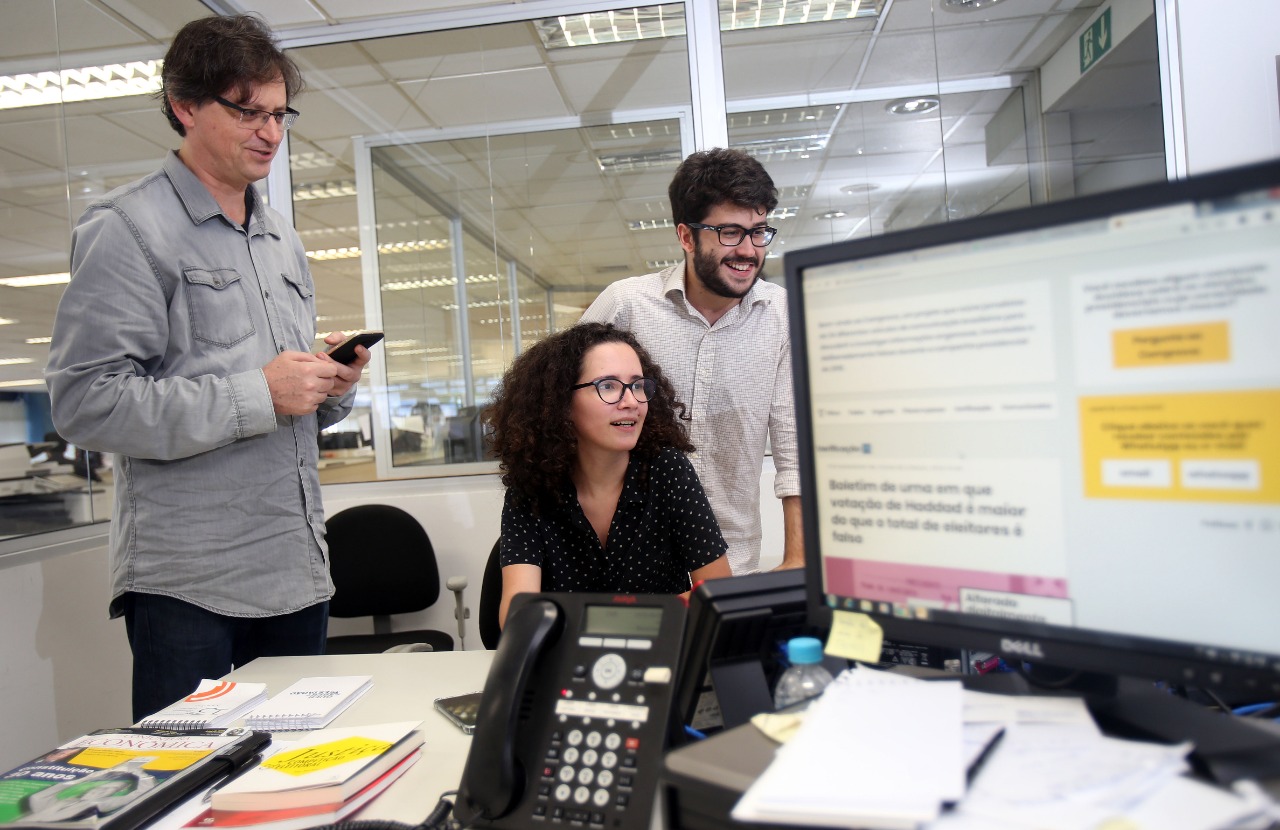
Alessandra with some of her colleagues at Estadão during the Comprova project in 2018. (Image: J.F. Diório)
Have you noticed any changes around disinformation in Brazil since the 2018 Presidential election? Have there been any major shifts that you have noticed?
It’s funny because once the election was over we were in a drought. We didn’t have a lot to do after the elections because the fake stories just vanished. They weren’t being as shared as before. But then once the new government started we saw that disinformation started to travel again.
We still see a lot of disinformation related to politics. But we have also started to pay more attention to health and food disinformation. I don’t think there was any major shift however, I think we just started paying more attention to these new kinds of disinformation.
What are the biggest issues facing media organisations in Brazil in terms of combating disinformation?
I think there is the issue of people not giving fact-checking as much importance as is needed. When we read a fact-check about something that is really crazy or really outlandish, we tend to dismiss it, but we forget that a lot of people believe it and think what they are reading is true. These are things that are affecting people’s lives.
When we read a fact-check about something that is really crazy or really outlandish, we tend to dismiss it, but we forget that a lot of people believe it and think what they are reading is true. These are things that are affecting people’s lives.
We had a fact-check last month about how baking soda doesn’t cure cancer. It was one of the fact-checks that was read most in our blog.
Fact-checking is dismissed as a smaller job or not as important as traditional reporting. But I think that is changing. Right now at Estadão we have three fact-checkers and an editor. Last year we only had two people. Fact-checking is gaining more attention.
Do you believe journalists in Brazil are properly equipped and have the necessary skills to deal with the problem of disinformation?
I think a lot of the abilities we have as fact-checkers are similar to that of a “normal” journalist. But yeah there are challenges. There are things that are very misleading for experienced journalists. Last month we had major social protests against cuts in the education budget. A lot of pictures circulating online of those protests were fake. And I saw those pictures in a lot of journalist groups on WhatsApp. A lot of people were sharing them as if they were real. I don’t think everyone has the skills to separate what’s fake from what’s real. Many people don’t give that much importance to learning about disinformation because they think disinformation is just crazy stories about baking soda curing cancer.
Many people don’t give that much importance to learning about disinformation because they think disinformation is just crazy stories about baking soda curing cancer.
What do you believe are the biggest threats of disinformation in Brazil?
The biggest threat now is that people are not trusting the media and there is a very large campaign by online groups and WhatsApp groups against the media. There is a message that circulates a lot saying, “Have you cancelled your subscription today?” And it has a list of telephone numbers from various news organizations, such as Estadão and Folha. We can debunk a lot of stories but people don’t trust our debunks. It’s something we need to focus on: to have a relationship with those people that don’t believe us anymore and understand why not. What can we do better?
What have been some of the biggest challenges for you as a journalist working on the disinformation beat?
The amount of work we have to do. We don’t have enough people doing fact-checking. Sometimes it is very frustrating because we see a lot of things we want to check but we don’t have the time or the means to do it. We feel like the other side [people producing disinformation] is somewhat stronger. It has more numbers, more people.
Based on your experience in Brazil, what would you want journalists in other countries to know about reporting on information disorder?
I want them to know how amazing collaborating is. If they were able to do something like Comprova that would be great. It has a lot of advantages. It makes your work easier and better; it makes the decision process easier; and it makes you more sure about the work you are doing.
With fact-checking we have to have a lot of teamwork. I don’t see it as individual work. I think there are a lot of nuances to it that benefit from discussion and debate and I think collaboration is key in this job. We don’t have to compete with others. I think the more the merrier in this line of work.
This interview has been edited and condensed for clarity.
To stay informed, become a First Draft subscriber and follow us on Facebook and Twitter.



